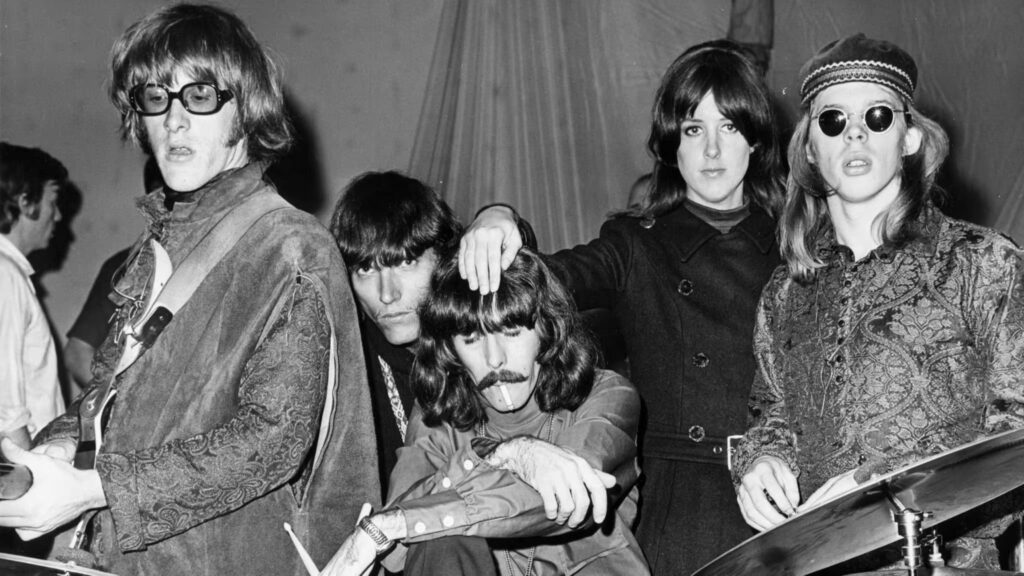
When Alice Fell Down the Rabbit Hole of the Counterculture
For many of us who lived through the seismic shifts of the late 1960s, a few songs stand not just as musical memories but as artifacts of a defining moment in history. Jefferson Airplane‘s “White Rabbit” is one such track—a hypnotic, disquieting, and utterly essential piece of the psychedelic revolution. It wasn’t just a song; it was an invitation, a warning, and a lyrical snapshot of a generation questioning everything they had been taught.
Released in June 1967 as a single from their seminal album “Surrealistic Pillow,” “White Rabbit” became one of the quintessential anthems of the “Summer of Love.” With its driving, hypnotic rhythm inspired by Maurice Ravel’s Boléro, the song built an undeniable tension that mirrored the social and cultural upheaval of the time. It was a commercial triumph, soaring to Number 8 on the Billboard Hot 100 chart, making it one of Jefferson Airplane‘s only two Top 40 hits. The story behind the song is as layered as its sound. Written by the band’s charismatic new singer, Grace Slick, before she even joined the group, the lyrics were a brilliant and daring allegory.
The song’s meaning is a masterclass in veiled social commentary. Drawing heavily from Lewis Carroll’s Alice’s Adventures in Wonderland and Through the Looking-Glass, Slick uses the fantastical imagery of the White Rabbit, the hookah-smoking caterpillar, and the “pill that makes you larger, and one pill makes you small” to criticize the hypocrisy of the older generation. While parents would read their children stories about characters taking mysterious substances to have adventures, they simultaneously condemned the youth for their experimentation with psychedelics. The song’s famous, repeated crescendo, “Go ask Alice… and feed your head,” wasn’t just a push towards drug use; it was a powerful call for intellectual curiosity and breaking free from societal norms. For those of us who were there, the song was both a soundtrack to a wild new world and a profound statement of purpose, forever marking a time when the boundaries of consciousness—and music—were pushed further than ever before.